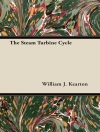The environmental implications of generating electric power from nuclear fission have been a matter of concern since the construction of the earliest nuclear reactors and power stations in the 1950s. After two or more decades of construction of nuclear power stations, this ceased in many countries, largely as a result of concerns for the environment and human health. However, the pressing need to reduce greenhouse gas emissions is leading many countries to plan extensive new programmes of construction of nuclear power stations which serves to re-emphasise concerns over environmental impacts. Volume 32 of the Issues in Environmental Science and Technology series is concerned with reviewing the political and social context for nuclear power generation, the nuclear fuel cycles and their implications for the environment. Known issues of nuclear accidents, the legacy of contaminated land and low level waste, and the decommissioning of nuclear sites are considered together with a more forward look at the deep geological disposal of high level waste and the pathways of radioactive substances in the environment and their implications for human and non-human organisms. This topical work will be of interest to scientists and policy makers working within this field or related areas as well as advanced students.
Spis treści
Nuclear Power Generation û Past, Present and Future;
Discharges from the Nuclear Fuel Cycle;
Nuclear Accidents;
Management of the Nuclear Legacy û Contaminated Land and Low-Level Waste;
Decommissioning of Nuclear Sites;
Geological Disposal of High Level Waste;
Pathways of Radioactive Substances in the Environment;
Environmental Consequences of Radioactivity;
Human Consequences of Environmental Radioactivity
O autorze
Ron Hester is an emeritus professor of chemistry at the University of York. In addition to his research work on a wide range of applications of vibrational spectroscopy, he has been actively involved in environmental chemistry and was a founder member of the Royal Society of Chemistry’s Environment Group. His current activities are mainly as an editor and as an external examiner and assessor on courses, individual promotions, and departmental/subject area evaluations both in the UK and abroad.












